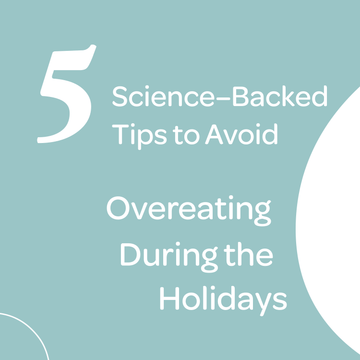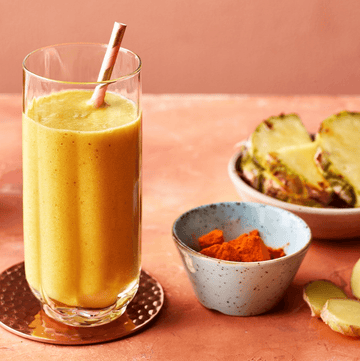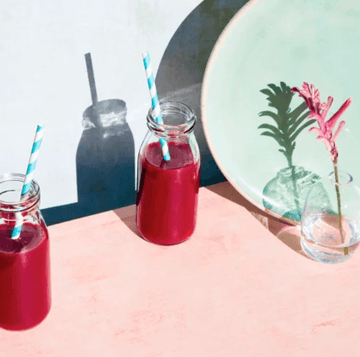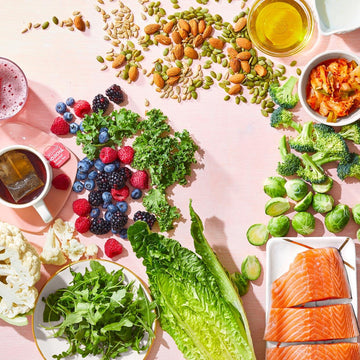I don’t know about you, but the holidays are definitely my favourite time of the year. The food is good, it’s a time to reconnect with family, and people are generally more generous and thankful. But with all these celebrations, parties and delicious food comes the added anxiety of weight gain and overeating. In fact, one study estimated that the average American gains 5lbs from Thanksgiving to New Years Day! [1] This may seem absurd, but if you think about it closely, there’s no denying this temporary deviation from your typical healthy lifestyle could have a lasting effect on your waistline and leave you struggling well into January to undo all the “damage” done each holiday season. Here are 5 science-backed tips to avoid overeating this Christmas.

1. Stay Hydrated
Drink lots of water during the holidays. Multiple studies have proven that water is an appetite suppressant and may even boost your metabolism. In fact, researchers from the University of North Carolina found that high water consumption, especially right before a meal, aids in weight control and reduced calorie consumption. [2] So fill up on water or even tea, but remember sugary drinks, coffees, and alcoholic beverages don’t count!
2. Avoid Calories from Beverages
Christmas Day in my family is not the same without sipping spiked eggnog from breakfast until night and enjoying a glass (or two!) of wine during Christmas dinner. However, all these extra calories from those must-have holiday drinks really add up! I’m not saying avoid all of these beverages, but just be extra mindful about how much you’re drinking on top of how much you’re eating.

3. Use Smaller Plates
People tend to fill up their plates when serving themselves. The bigger the plate, the more food you take, so one way to reduce portion size is simply using smaller plates. A 2005 study compared how much people ate using a 9.5-inch plate to a 12.5-inch plate and concluded that the people eating from the smaller plate ate remarkably 27% fewer calories. [3] Similarly, the type of glass you use might also make a difference. Drinking from a tall, skinny glass, as opposed to short, wide ones can reduce the amount you drink by over 50%! [4]
4. Eat Healthfully Throughout The Day
In between parties or dinners make sure to eat healthfully. Fill up with nutritious veggies, whole grains and protein-rich foods (like this delicious protein smoothie) to help keep you feeling fuller, longer. This can also prevent you from going to a party hungry. Some people may want to fast or eat very little leading up to an event but this could be even more harmful as going to a party hungry may cause you to overindulge a little too much, especially on high-sugar, calorie-rich foods.

5. Slow Down
Eat slower. It is common knowledge that your body’s fullness signals are not activated until at least 20 minutes after your first bite. Researchers from the University of Michigan observed that obesity was directly linked to rapid eating for this reason. [5] So slow down, and take time to mindfully savour each bite and you won’t just eat less, you will probably enjoy the meal a lot more too!
All this being said, the holidays are supposed to be a time of enjoyment and socializing. Don’t be afraid to indulge a little bit and enjoy a slice of pie or your sister’s famous reindeer fudge brownies. But to avoid the dreaded 5lb weight gain, follow these 5 science-backed tips and have a wonderful holiday!
Kirstin Berrington is an AURA Team member with a passion for all things nutrition and health. As a nutritionist, she is equipped with a B.Sc. in Human Nutritional Sciences to help answer all your food-related questions.
Sources:
- https://www.nejm.org/doi/full/10.1056/nejm200003233421206
- https://www.ncbi.nlm.nih.gov/pubmed/16421349
- https://jamanetwork.com/journals/jama/fullarticle/200673
- https://academic.oup.com/jcr/article-abstract/30/3/455/1790637
- https://deepblue.lib.umich.edu/bitstream/handle/2027.42/33265/0000657.pdf?sequence=1






